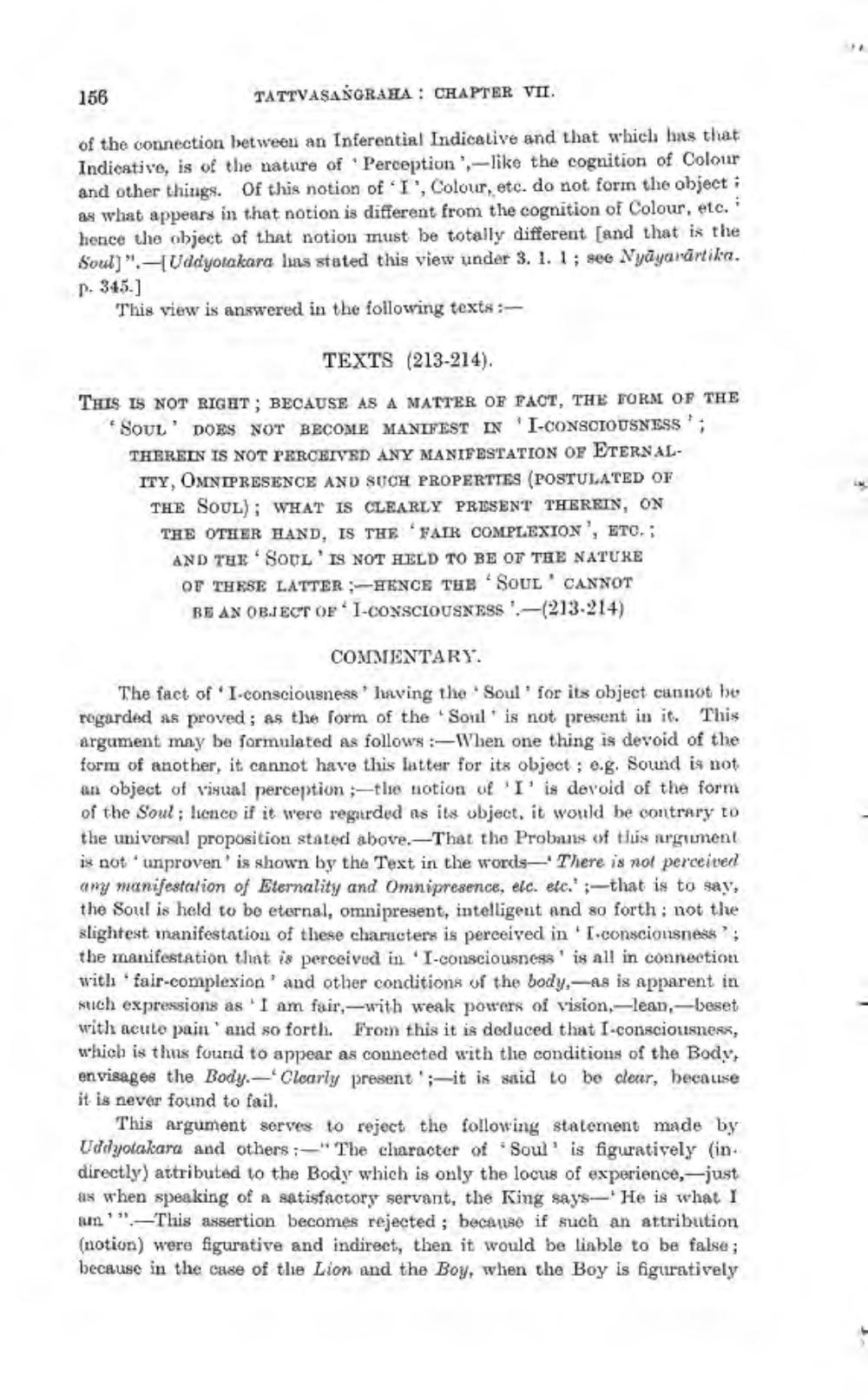________________
156
TATTVASANGRAHA : CHAPTER VII.
of the connection between an Inferential Indicative and that which has that Indieative, is of the nature of Perception', - like the cognition of Colour and other things. Of this notion of T', Colour, etc. do not for the object : as what appears in that notion is different from the cognition of Colour, etc. hence the object of that notion must be totally different [and that is the Soul)".-Uddyotakara has stated this view under 3. 1. 1 ; see Nyāyarartika. p. 345.]
This view is answered in the following texts :
TEXTS (213-214).
THIS IS NOT RIGHT, BECAUSE AS A MATTER OF FAOT, THE FORM OF THE
Soul' DOES NOT BECOME MANIFEST IN 'I-CONSCIOUSNESS'; THEREIN IS NOT PERCEIVED ANY MANIFESTATION OF ETERNALITY, OMNIPRESENCE AND SUCH PROPERTIES (POSTULATED OF THE SOUL); WHAT IS CLEARLY PROSENT THEREIN, ON THE OTHER HAND, IS THE FAIR COMPLEXION, ETC.; AND THE SOIL' IS NOT HELD TO BE OT THE NATURE OF THESE LATTER HENCE THE SOUL CANNOT BE AN OBJECT OF I-CONSCIOUSNESS :-(213-214)
COMMENTARY. The fact of 'I.consciousness'having the Soul' for its object cannot be regarded as proved ; as the form of the Soul' is not present in it. This argument may be formulated as follows:- When one thing is devoid of the form of another, it cannot have this latter for its object; o.g. Sound is not an object of visual perception ;-tlie notion of 'I' is devoid of the form of the Soul ; lience if it were regarded as its object, it would be contrary to the universal proposition stated above. That the Probans of this argument is not unproven is shown by the Text in the words There is nol perceivel any manifestation of Eternality and Omnipresence, etc. etc.':-that is to say, the Soul is held to be eternal, omni present, intelligent and so forth: not the slightest manifestation of these characters is perceived in I.consciousness': the manifestation that is perceived in 'I-consciousness' is all in connection with 'fair-complexion and other conditions of the body, -as is apparent in such expressions as I am fair, with weak powers of vision.-lean, beset with acuto pain' and so forth. From this it is deduced that I consciousness, which is thus found to appear as connected with the conditions of the Body, en visages the Body-Clearly present':--it is said to be clear, because it is never found to fail.
This argument serves to reject the following statement made by Uddyotakara and others :-"The character of Soul' is figuratively in directly) attributed to the Body which is only the locus of experience,-just as when speaking of a satisfactory servant, the King says-He is what I an"" -This assertion becomes rejected; because if such an attribution (notion) were figurative and indirect, then it would be liable to be false; because in the case of the Lion and the Boy, when the Boy is figuratively




